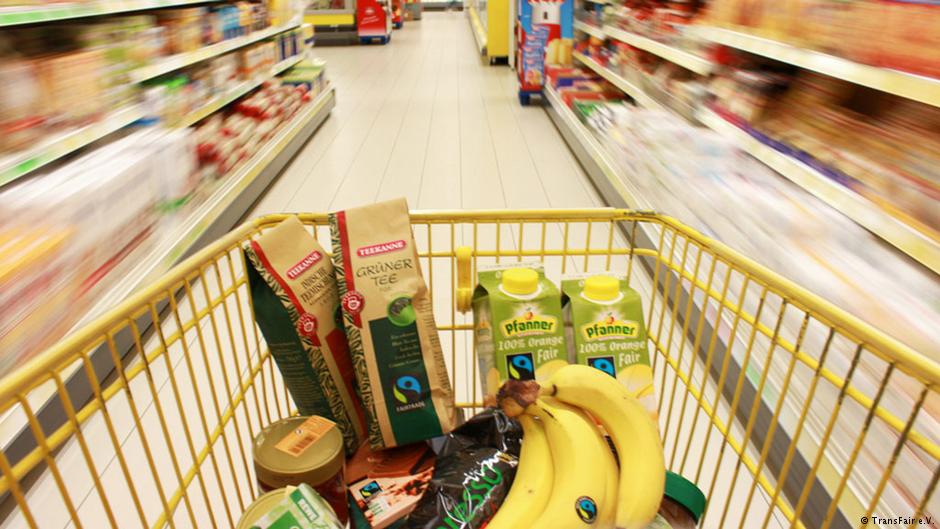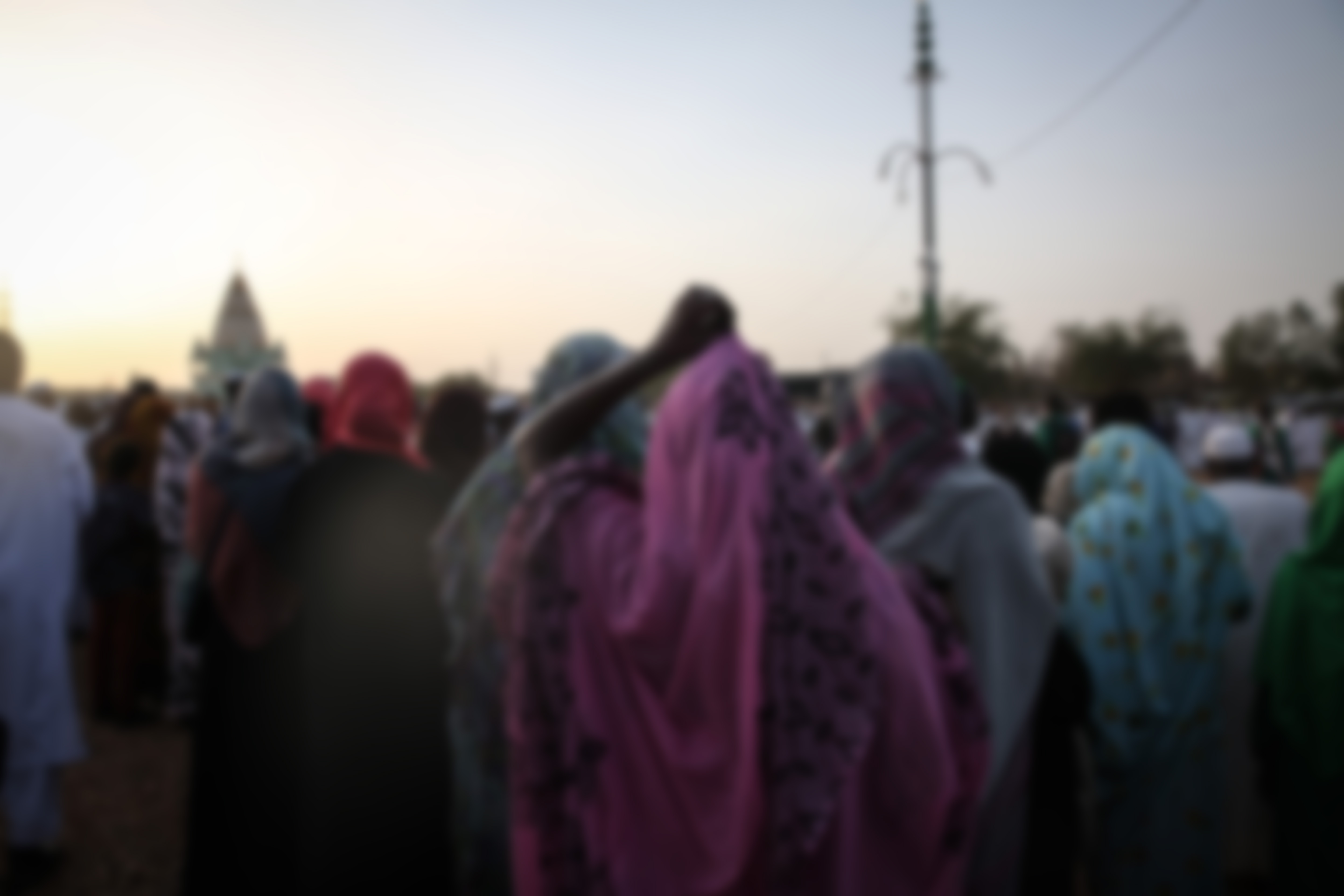This story was reported by Kait Bolongaro, Selase Kove-Seyram, Brandy Miller and Maurice Oniango. This story was written by Bolongaro, Selase Kove-Seyram, Brandy Miller and Maurice Oniango. This story is a co-production of Washington, DC-based 100Reporters – a non-profit investigative journalism workshop, and Journalists For Transparency, a project of Transparency International. For more information, see About Us.
Since the early 1990s, fair trade agriculture has been touted as a tool to help farmers in developing nations raise their income by securing better prices for raw products that enjoyed high demand in Europe and the United States.
Most of the intended beneficiaries are in Africa, and grow labor-intensive crops like cocoa, coffee, tea, flowers, and bananas.
The standards are high: From production to shipping, nearly every step from farm to table has to be certified, by a number of organizations. In this system, many farmers who decide to adopt organic and fair trade practices sell produce and flowers to cooperatives, which in turn receive money from Europe-based Fairtrade International.
Fairtrade cooperatives are supposed to function as democratic unions, where members decide how premiums are divided and monies spent. Members are also required to be small-scale producers who run their farms independently. Fairtrade promises to protect laborers on certified farms, where decent working conditions and employee rights are respected.
The reality of fair trade in Africa, however, falls short of the goal.
Reporters from 100Reporters and Journalists For Transparency found small-scale farmers who supply Fairtrade International products living in abject poverty, unable to afford basic needs, such as medicine or education for their children. Meanwhile, unfair employment practices on some Fairtrade-certified farms persist. Workers were found toiling in hazardous conditions for wages that did not cover basic needs, in apparent violation of Fairtrade standards. In Kenya, women said they were ordered to work with agricultural chemicals on flower farms when pregnant, that caused them to miscarry.
In a written statement, Fairtrade International said that it took seriously any breach of standards. “No certification system, company or individual can give a 100 percent guarantee that a supply chain is free of unacceptable labour practices, but Fairtrade ensures that if we receive information on any violation of the rights of children or vulnerable adults, we take immediate action to protect the impacted individuals,” said Eric Fichtl, a spokesman for Fairtrade International. “We work with national protection agencies and/or human rights organizations when possible to ensure duty bearers engage in safe remediation and secure the impacted individuals’ long-term well being.”
The harsh conditions exist as a stark backdrop to rising demand for fair trade products.
According to Fairtrade International, from 2015 to 2016, demand for fair trade cocoa, coffee, and bananas grew by 27, 18, and 12 percent respectively. By the end of 2016, global retail sales grew to $9.45 billion, up from $5.7 billion in 2010.
European consumers – principally in France and Germany – are willing to pay a significant markup for goods with the Fairtrade International label. They believe that by doing so, they are helping improve the lives of farmers who’ve won certification.
But the process has not been as fair, transparent, or as democratic as some farmers–or consumers–expected.
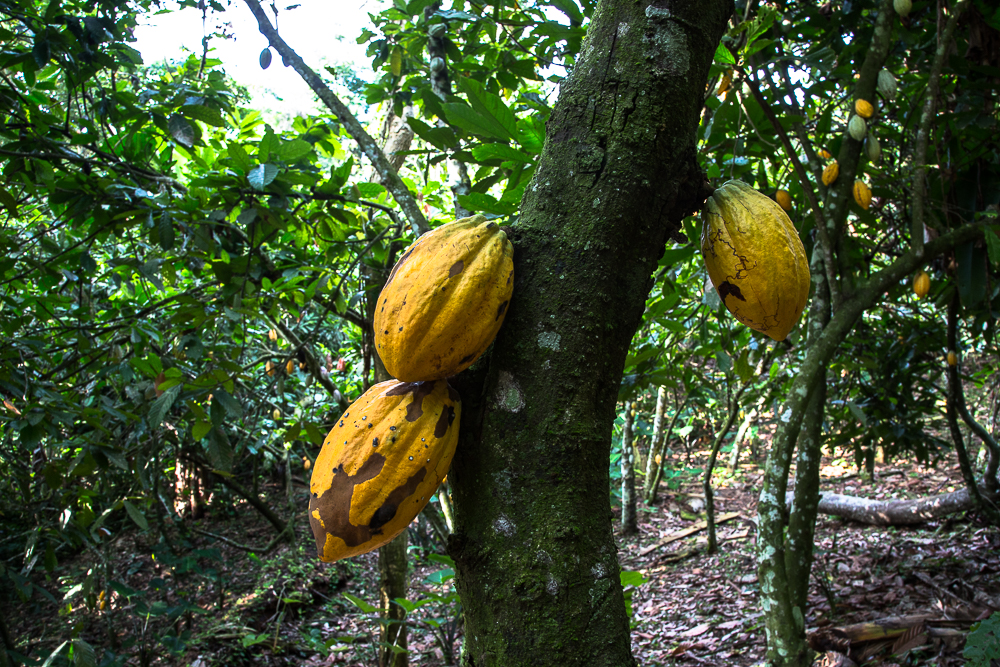
Ghana’s Golden Cocoa Bean
Standing behind his humble abode, Ebenezer Okine Nartey proudly surveys his 15-acre cocoa farm.
For two straight years, the 53-year-old has been crowned the best farmer in his village of Aponoapona, in eastern Ghana. In a region renowned for its organic cocoa yields, Nartey is the single-largest producer of organic fair trade cocoa.
For his efforts, the cocoa farmer sees little more than the $10 premium paid for each bag. Since he doesn’t earn enough to make ends meet harvesting cocoa, he supplements his income by producing local gin to pay for his children’s education.
“Even though I get money from selling cocoa, it’s not enough to solve all my problems. Sometimes, too, the money from selling cocoa does not come on time, so you don’t want to focus on just one thing and get into financial difficulties,” he said.
According to their standards for hired workers, farm owners have 30 days to pay the cooperative the premium. However, it doesn’t set at deadline for when cooperatives have to give farmers the premium. Instead, they are only supposed to be transparent and documented transfers.
Nartey’s six school-aged children have fallen behind because sometimes the family must skip paying the school fees. His big hope is that fair trade farming develops so he can afford the school fees.
“It is important that Fairtrade (International) provides us with some support for things like the kids’ education. If they help us that way, it motivates us to produce more. Personally, I have produced a lot of cocoa bags in this community for Fairtrade,” he explained.
Nartey has also struggled to pay for his medication after a stroke five years ago. He is in recovery, but here, too, he must scrimp because money for prescription medication falls short.
“When conditions get tough, I sometimes have to sacrifice money meant for my medicine on the kids’ education. I have not been able to send them beyond high school because I don’t have the financial strength to push them through,” he said.
Ghana is a cocoa-producing powerhouse as one of the four West African countries producing more than 70 percent of the world’s cocoa. Established in 1947, the Ghana Cocoa Board (COCOBOD) manages the country’s cocoa market. The state-run industry regulator has helped sustain the cocoa industry in Ghana, ensuring access to the best markets at the highest prices.
According to COCOBOD’s operational requirements, all sales contracts, including Fairtrade sales, must be registered with the industry regulator. The body was established to protect and organize Ghana’s cocoa supply. The high quality of its cocoa beans means the country receives a market premium of as much as $150 a ton, above the prevailing world cocoa price. In recent years, premium prices paid to COCOBOD have reportedly been better than what Fairtrade pays. Because of this, Fairtrade has yet to win over a significant share in Ghanaian cocoa production, with volumes of Fairtrade cocoa amounting to just 6.1 percent of the national production share.
Moreover, only half of what Fairtrade-certified farmers produced is sold under the Fairtrade label. As cooperative unions and their members account for only a small percentage of cocoa income in Ghana, there is no incentive for COCOBOD to seek additional market outlets for Fairtrade-certified cocoa. This leaves many Fairtrade farmers in Ghana without a guaranteed buyer.
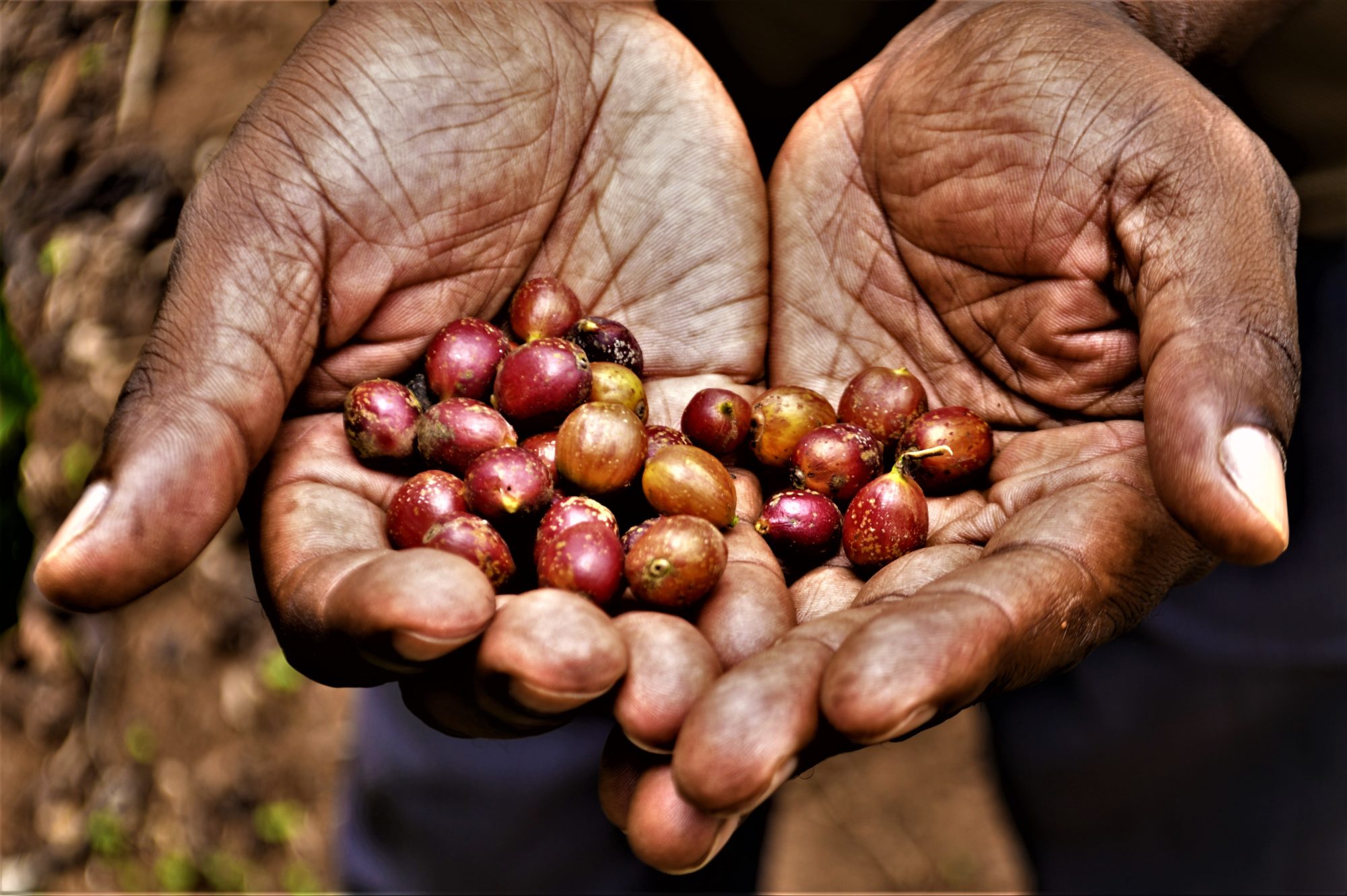
Uganda Coffee: The Fairtrade Gold Standard
While the fair trade concept has attracted criticism of late, there are countries where the scheme has clearly made a difference for farmers.
In Uganda, a landlocked country rich in natural resources and fertile farmland, farmers said fair trade coffee is a tough crop to grow, but is a worthwhile effort.
“We are putting in a lot of money to be Fairtrade,” explained Robert Buule, the executive director of the Central Coffee Farmers Association (CECOFA).
The coffee farmer says critics should keep in mind is that gaining Fairtrade International certification is no easy task. Digging terraces to avoid soil erosion and planting additional trees are just some of the responsibilities.
“It’s the only way that farmers can see the difference in terms of remuneration for the(ir) services,” said For David Lukwata, general manager of Kibinge Coffee Farmers Cooperative Society.
Farmers learn how to more carefully handle their coffee crops. This protects the quality of the product, and the premium prices farmers get.
Jimmy Muyingo is 56 years old and has farmed coffee for 24 years, following his father’s footsteps. He says he’s learned that the acres of coffee trees he tenderly harvests are the source of his good fortune, even before becoming a Fairtrade International farmer.
Upon joining CEFOFA, he was trained on fair trade standards such as the processing and grading of coffee cherries. “That took us away from just rushing to any buyer,” he said. “Now we are settled with one buyer … with the best market.”
But the lines of communication between farmers and cooperative leaders aren’t always clear.
He was asked about a well, dug with money from the premiums the cooperative gets for its premium beans. Muyingo wasn’t aware of the well.
“It appears when they put up projects like that, some of us are not informed,” he mused.
Muyingo’s complaint is light, compared with criticisms that have tarnished the reputation of fair trade production in Uganga. In 2014, a team of four development researchers from the School of Oriental African Studies – SOAS – in London found that Fair Trade-certified coffee products from Uganda and Ethiopia do not provide the advertized benefits for poor farmers and farmworkers, and that profits often fail to trickle down. The research, titled Fair Trade, Employment and Poverty Reduction in Ethiopia and Uganda was done in a span of four years in Ethiopia and Uganda and interviewed 1,700 survey responses.
Agriculture in Uganda generates 90-percent of export earnings and employs about eight of every 10 Ugandans. The ubiquitous coffee bean is its primary export crop.
But farmers insist the premium is needed, because coffee remains a laborious, time-consuming investment. It is one of the most valuable global commodities, with consumption almost doubling since the 1970s. According to Fairtrade International, consumers drank 8.5 million tons of coffee in 2015 compared to 4.2 million tons in 1970.
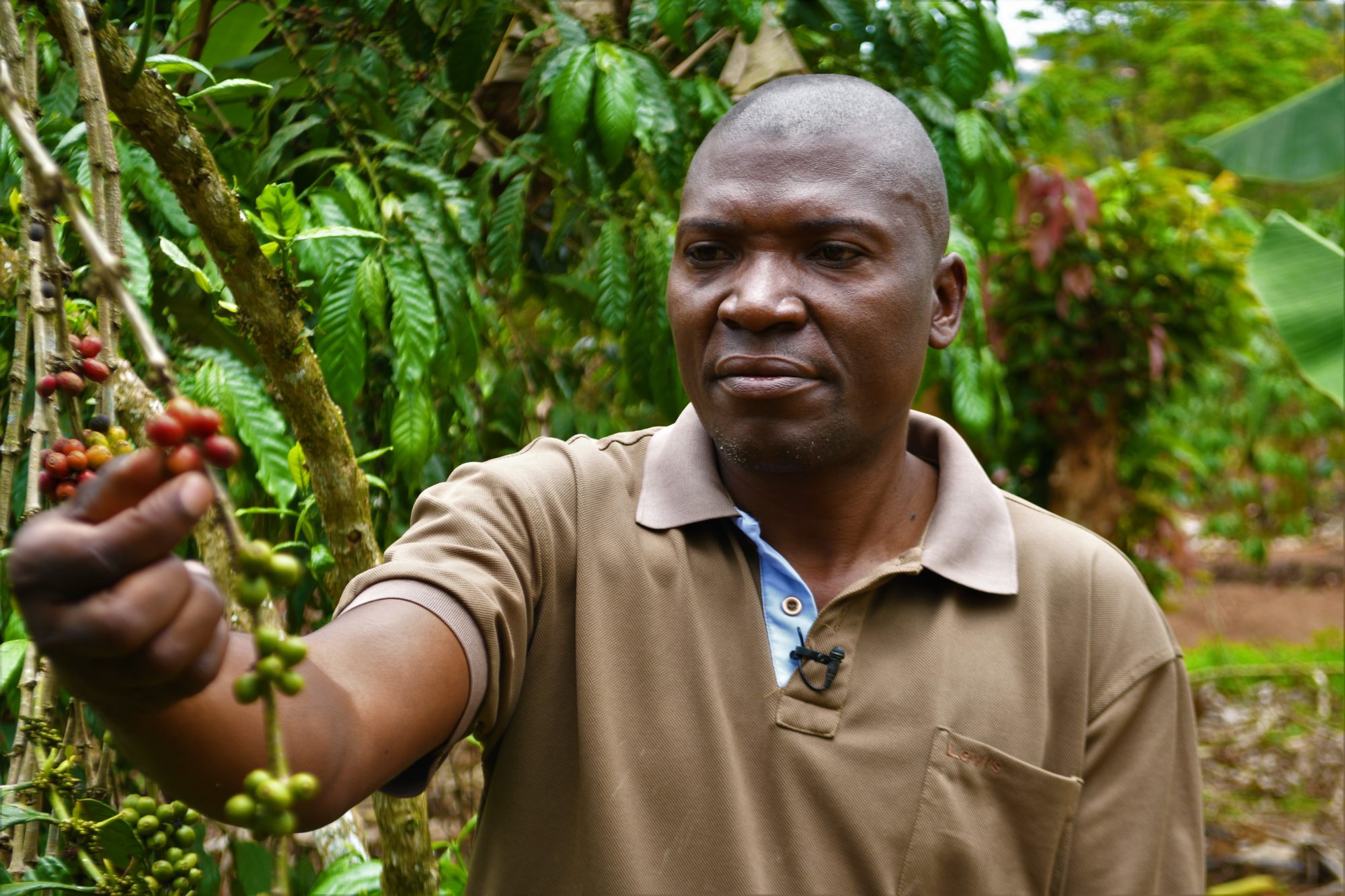
when it works, it’s more than fair
Despite the demand, production can be as fickle as the weather, and world crop prices can fluctuate. In Uganda, coffee has amounted to over 60 percent of annual export revenues, making this crop vital to the livelihood of people across the country. Its indigenous robusta and widely produced arabica varieties have faced decades of threats. At one time, the spread of the coffee wilt disease destroyed 50 percent of the country’s robusta. The crop losses or drops in market prices can be devastating for smaller producers. Fairtrade says that its minimum price guarantee has acted as a safety net.
In Uganda, fair trade coffee is a success story, said Justine Namayanja Zziwa, business support officer for Fairtrade Uganda. The country now has the largest number of certified crops, compared to other African countries. Of its 35 certified producers, 25 are for coffee.
Aisha Najjuma is a coffee farmer in the village of Kiyooka. Before joining the Kibinge Coffee Farmers’ Co-Operative Society in 2002, Najjuma says she spent her first years in farming subject to the whims of middlemen. She says female farmers faced particular discrimination and were widely cheated by middleman using faulty scales and arbitrary prices.
“Then, middlemen were the market price dictators,” Najjuma said. “Buyers could come, sometimes buy coffee at their preferred price, sometimes while the coffee was still in the garden.”
Now seated on the board of her cooperative representing female farmers, Najjuma is proud of her coffee crop. She credits the cooperative and Fairtrade International with nourishing her confidence as a grower.
“Our coffee is on high demand as it is of good quality,” she said. “We are role models.”
Unfair Trade was produced in collaboration with Journalists for Transparency, with support from Transparency International, the global anti-corruption organization.









